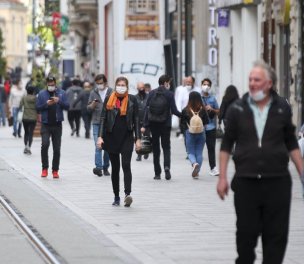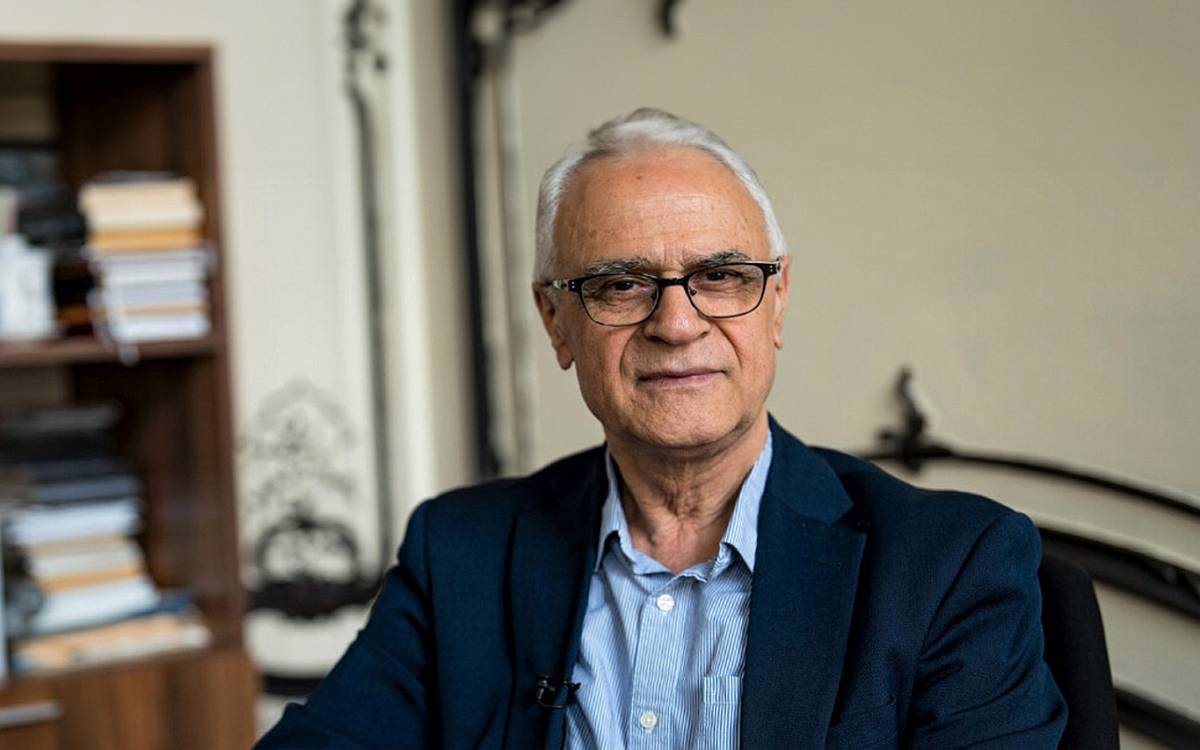* Photo: Anadolu Agency (AA)
Click to read the article in Turkish
It has been two years since Turkey announced its first novel coronavirus (COVID-19) case. According to the official data of the Health Ministry, Turkey has seen 14.5 million COVID-19 cases and nearly 96 thousand deaths since March 11, 2020, when the first case was reported.
The virus has undergone innumerous mutations over the past two years. All new variants from Beta, Delta and Delta Plus to Omicron have also arrived in Turkey. The country has once again witnessed record-high number of cases and deaths due to the Omicron variant.
However, at a time when the number of daily cases was over 50 thousand and 130 to 150 people died a day, the Ministry of Health and its Coronavirus Scientific Advisory Board decided to lift the measures.
On March 2, 2022, Minister of Health Fahrettin Koca announced that the measures have been lifted, noting that the measures will now continue on the individual level and the outdoors mask mandate will be lifted. If social distance can be maintained and ventilation is good, one will not be required to wear a mask in closed places, either, according to the Health Minister.
On the same day, the Ministry also decided to remove the contact tracing code (HES code) requirements in entering stadiums.
'New variants may come up'
Against this backdrop, we have spoken to Turkish Medical Association (TTB) Secretary General and Immunologist Prof. Vedat Bulut, asking him, "Considering that measures have been lifted after two years, is the pandemic now over and has Turkey completed the process?"
Prof. Bulut has underlined that the pandemic is not yet over and, in fact, more dangerous new variants may come up.
Raising concerns over the vaccination rates across the world, Prof. Bulut has said, "Only 54 percent of the world population have been vaccinated so far; for this reason, new variants will arise in the upcoming months and years, this is inevitable."
According to Bulut, if the vaccine patents had been removed and access to vaccination had been ensured, the pandemic would now be eliminated all across the globe: "The condition to do this was there, too; but it was not done and we are still trying to live with the pandemic."
'Vaccination is very low in poor countries'
Prof. Vedat Bulut has stressed that the vaccination rates are especially low in poor countries, noting that new variants may arise in Africa or other poor countries: "Due to the lack of vaccination in poor countries, the virus constantly manifests itself in the countries that have the highest vaccination rates of the world; it is like a boomerang. For instance, the vaccination rate has hit 99 percent in Saudi Arabia. Canada is another country with a very high vaccination rate. But the disease may still be seen."
'The risk prevails'
Putting a special emphasis on the fact that the Omicron is not the last variant, Prof. Bulut has also commented on Turkey's lifting of measures:
"The risk still prevails, vaccination rates are still not enough... Lifting measures in such a condition means putting Turkey under a huge risk."
Noting that Turkey has been mistaken in that regard, Prof. Vedat Bulut has said, "The transmission rate of the Omicron is really high and almost everyone has caught the disease. Isolating everyone who has contracted the virus would lead to a huge workforce loss."
Bulut has recalled that "a perception of 'the disease shows mild symptoms' was created and measures have been lifted" and added:
In fact, we can say that capitalism is to the omicron. But we should not forget that 140-150 people still lose their lives everyday. Acting as if there was no disease while so many people are dying means disregarding people's lives.
"Moreover, Turkey thinks that it can realize social immunity like this. But something is forgotten: The antibodies formed in the bodies of those who caught the disease protect these people only from that specific variant; this is also the case with vaccination. So, when a new variant arises, it falls short of immunizing people against it. The full protectiveness of Moderna, Pfizer and Sputnik vaccines dropped in the newly emerged variants. They improved the vaccines. So, immunity will not be the case by lifting measures."
NOTE: Since December 2019, the novel coronavirus (COVID-19) pandemic has claimed over 6 million lives in 191 countries and regions. Over 453 million total cases have been reported worldwide, according to figures compiled by the US' Johns Hopkins University.
(RT/SD)





.jpg)







